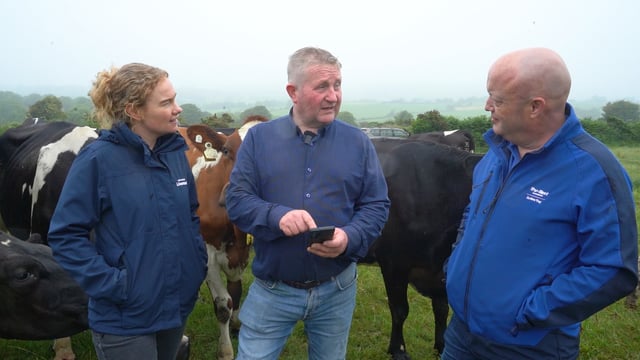Hungary to seek 'farmer-orientated' policy during EU presidency
Hungary has said that it will seek a "farmer-orientated" agricultural policy during its six-month presidency of the Council of the EU.
Hungary will assume the rotating presidency of the council on Monday (July 1), and will remain in that role until December 31.
It will take over that role from Belgium, which has held the council presidency since January 1.
The Council of the EU brings together the government ministers of each EU member state. When a country holds the presidency of the Council of the EU, each of the council's 'configurations' - such as the Agriculture and Fisheries Council, or the Environment Council - will be led and chaired by the appropriate minister for that policy area from that country.
A document outlining Hungary's priorities for its presidency says that European agriculture "may have never faced as many challenges as it does today".
"Extraordinary weather conditions caused by climate change, growing input costs, increasing imports from third countries, and overly-stringent production rules have significantly decreased the competitiveness of the sector," it says.
"The accumulation of these challenges led to a situation where the livelihood of European farmers is threatened," the policy document adds.
Hungary called for farmers to be viewed "not as a cause of climate change but as part of the solution, by engaging farmers in adopting more sustainable production practices".
"European farmers provide all EU citizens with basic public goods. Therefore, a long-term guarantee of food sovereignty and food security should be part of the strategic autonomy of the EU."
Hungary said it will aim will take advantage of the EU's "institutional transitions period" (with a new European Commission due to be appointed by October) to guide the new commission in formulating the rules of the EU's post-2027 Common Agricultural Policy (CAP) for a "comprehensive, crisis-proof and farmer friendly agriculture".
Specifically, Hungary said it will launch a debate on the experience of the implementation of the CAP strategic plans and the post-2027 delivery model.
The incoming presidency has also said that it will commence discussions on how direct payments and rural development subsidies of the future Common Agricultural Policy (CAP) can most effectively enhance the competitiveness of farmers and the food system.
In other EU news this week, a conference titled "Rebuilding Ukrainian Agriculture" was held in Brussels.
Representatives of EU member states and the Ukrainian agricultural sector met to discuss the key instruments needed to develop the Ukrainian agricultural sector so it is more closely aligned with the EU structure.
The conference also discussed a possible financial plan for Ukrainian agricultural producers and their access to the EU and global food markets.
According to the Ukrainian Agri Council (UAC), one of the main instruments for the restoration and development of the agricultural sector in Ukraine are sanctions against Russian and Belarussian food producers.
UAC chairperson Andrii Dykun told the EU representatives that Ukrainian farmers "do not need subsidies from the EU", and that Ukraine's membership of the EU will only strengthen trade relations.
"Do not worry about your budget and tell your countries and farmers that Ukraine does not apply for subsidies. We need your support in weapons to defend the country, not subsidies for Ukrainian agri-business, because it has always worked effectively without subsidies," Dykun added.
"We can increase soybean production for the EU, you can buy rapeseed from us for biofuel production. Ukraine can produce more than 10 million tonnes of sugar and sell it to the EU. Similarly, the dairy sector can be beneficial for both sides."
"The EU does not have the potential to grow the cattle and dairy sector, while Ukraine does," he said.





